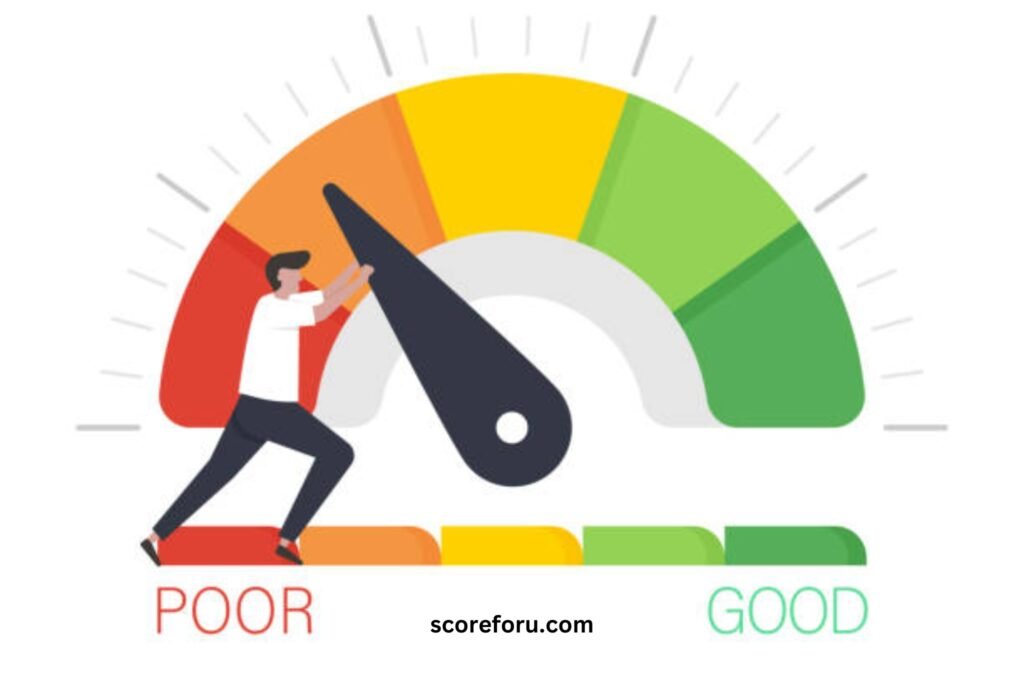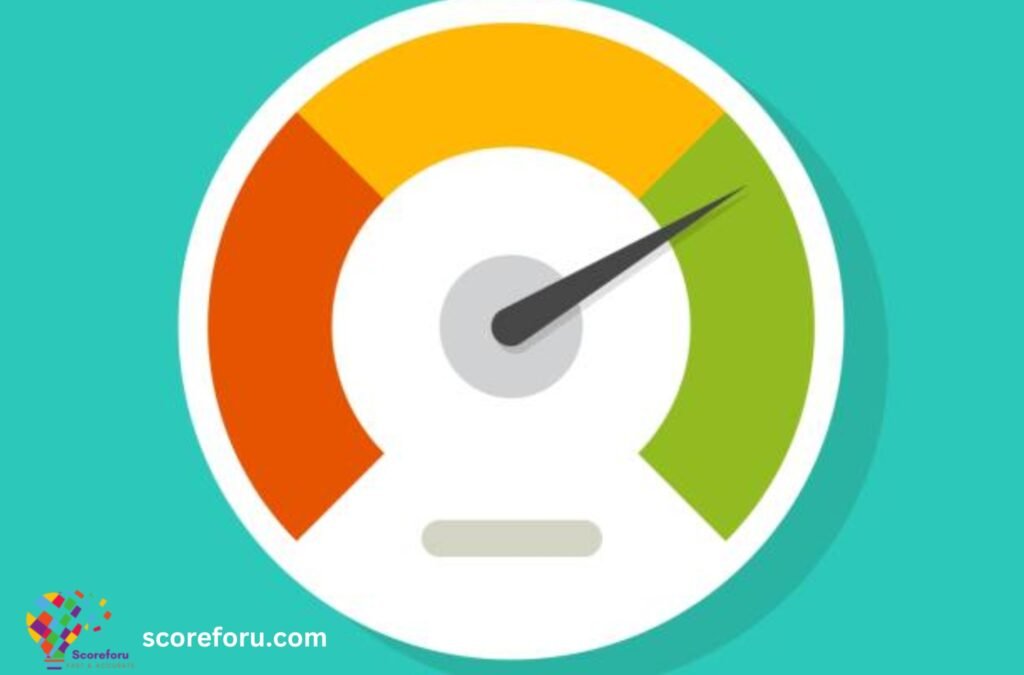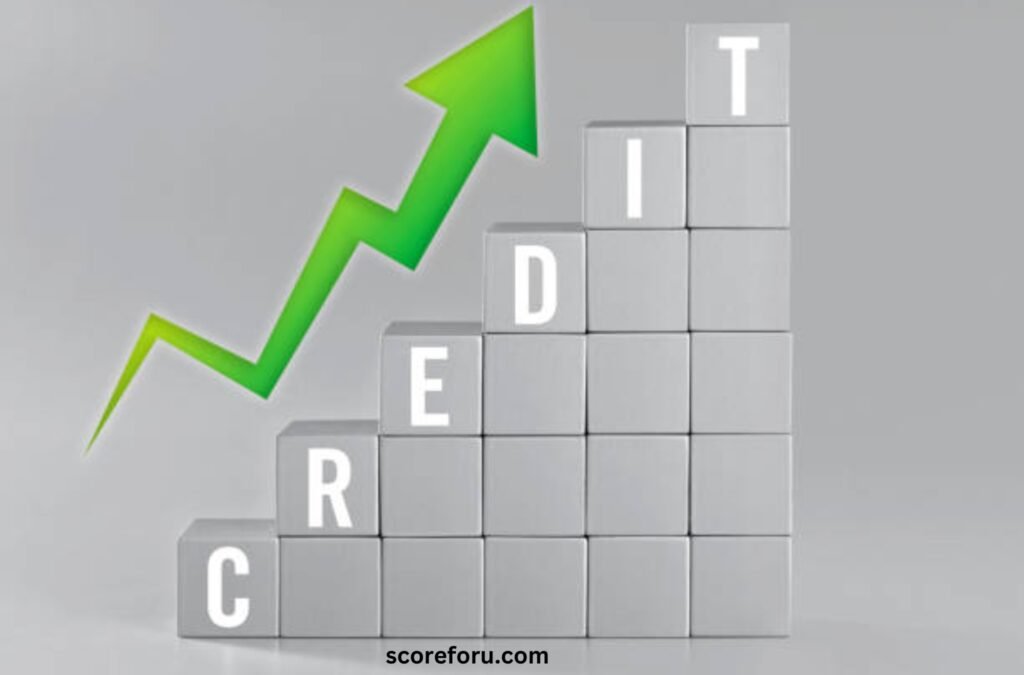To raise your credit score, lower your credit utilization rate, ask for late payment forgiveness, dispute inaccurate information on your credit reports, and add utility and phone payments to your credit report. By taking these steps, you can quickly improve your credit score.
Improving your credit score is essential for many financial and personal goals, such as obtaining a mortgage or loan, getting lower interest rates, or even just having peace of mind. However, it can be challenging to know where to start.
Fortunately, there are several strategies you can implement to raise your credit score quickly. This article will provide you with practical tips and techniques to improve your credit score effectively. By following the guidelines outlined here, you can take control of your financial future and achieve your credit score goals.

Understanding Credit Scores
To raise your credit score, you can take steps such as lowering your credit utilization rate, asking for forgiveness on late payments, disputing inaccurate information on your credit reports, adding utility and phone payments to your credit history, and checking and understanding your credit score.
By implementing these strategies, you can improve your creditworthiness and increase your chances of getting approved for loans and credit cards.
What Is A Credit Score?
A credit score is a three-digit number that represents your creditworthiness. It is a numerical assessment of your credit history that helps lenders determine whether you are a reliable borrower.
Credit Score Ranges
Credit scores are typically divided into different ranges that indicate your creditworthiness. These ranges can vary depending on the credit scoring model used, but generally, the higher your credit score, the better your creditworthiness.
| Credit Score Range | Creditworthiness |
|---|---|
| 300-579 | Poor |
| 580-669 | Fair |
| 670-739 | Good |
| 740-799 | Very Good |
| 800-850 | Excellent |
Understanding credit score ranges can give you an idea of where you stand and what steps you can take to improve your credit score. If your credit score falls within the poor or fair range, you may face challenges when applying for loans or credit cards. On the other hand, having a good to excellent credit score can open up opportunities for better interest rates and more favorable loan terms.
https://scoreforu.com/what-is-excellent-credit-score/Overall, it is important to regularly check and understand your credit score, as it plays a crucial role in your financial health. By knowing your credit score range and taking steps to improve your creditworthiness, you can raise your credit score and increase your chances of getting approved for loans and achieving your financial goals.

Factors Affecting Credit Scores
To raise your credit score, you can take steps such as lowering your credit utilization rate, disputing inaccuracies on your credit report, and adding utility and phone payments to your credit history. It’s important to check and understand your credit score as well.
By implementing these strategies, you can improve your credit score quickly.
Credit Utilization
One of the key factors affecting credit scores is credit utilization, which refers to the amount of credit you are currently using compared to your total available credit. Maintaining a low credit utilization rate is crucial for boosting your credit score. Ideally, you should aim to keep your credit utilization below 30%. For example, if you have a credit limit of $10,000, you should aim to keep your outstanding balance below $3,000. A high credit utilization rate indicates to lenders that you may be relying too heavily on credit and could be at a higher risk of defaulting on payments.
On-time Payments
Another important factor in determining your credit score is your payment history. Making your payments on time is crucial for maintaining a good credit score. Late payments can significantly lower your credit score and stay on your credit report for up to seven years. To ensure you never miss a payment, consider setting up autopay or calendar reminders to help you stay organized. By consistently making on-time payments, you send a positive signal to lenders that you are responsible and reliable with your credit obligations.
Credit History Length
The length of your credit history also plays a role in determining your credit score. Lenders prefer to see a longer credit history as it provides them with more information to assess your creditworthiness. If you’re just starting to establish credit, it’s important to be patient and build a solid credit history over time. Avoid closing old credit card accounts, as it can shorten your credit history and potentially have a negative impact on your credit score. By keeping your oldest accounts open and consistently using your credit responsibly, you can bolster your credit history and improve your credit score.
Credit Mix
Having a healthy mix of credit accounts can positively impact your credit score. Lenders like to see that you can manage different types of credit responsibly. This includes a mix of credit cards, installment loans, and mortgages. However, it’s important to note that opening multiple credit accounts just for the sake of diversifying your credit mix can have a negative impact on your credit score. Only open new accounts when necessary and ensure you can manage them responsibly.
With these factors in mind, it’s important to be mindful of your credit utilization, make on-time payments, maintain a lengthy credit history, and have a diverse credit mix. By focusing on these aspects, you can improve your credit score over time and open up opportunities for better loan terms and lower interest rates. Remember, building good credit takes time and consistency, so be patient and stay committed to healthy credit habits.
Steps To Raise Credit Score
Raising your credit score is an essential step towards achieving financial stability. Whether you’re looking to secure a loan or get better interest rates on credit cards, taking control of your credit score can make a significant difference. Here are some practical steps you can take to improve your credit score:
Lower Credit Utilization Rate
Your credit utilization rate is the percentage of your available credit that you’re currently using. Keeping this rate low demonstrates responsible credit management, which can positively impact your credit score. To lower your credit utilization rate:
- Pay off outstanding balances.
- Avoid maxing out your credit cards.
- Consider spreading your debt across multiple cards to distribute the utilization evenly.
- Monitor your credit utilization regularly and adjust as needed.
Ask For Late Payment Forgiveness
One late payment can significantly impact your credit score. However, some lenders offer forgiveness programs that allow you to remove late payment entries from your credit report. To ask for late payment forgiveness:
- Contact your creditor and explain the situation.
- Highlight your positive payment history and commitment to improving your credit.
- Request for the late payment to be removed from your credit report.
- Follow up with the creditor to ensure the entry has been corrected.
Dispute Inaccurate Information
Errors on your credit report can negatively impact your credit score. It’s crucial to review your credit report regularly and dispute any inaccurate information. To dispute inaccurate information:
- Obtain a copy of your credit report from all three major credit bureaus.
- Identify any errors or discrepancies in the report.
- Submit a dispute letter to the credit bureau, providing supporting documents and a clear explanation of the error.
- Follow up with the credit bureau to ensure the correction is made.
Add Utility And Phone Payments
Some credit scoring models take into account utility and phone payments when calculating your credit score. Adding these payments to your credit report can help boost your score. To add utility and phone payments:
- Check if your utility and phone providers report payment history to credit bureaus.
- If they don’t, consider signing up for alternative services that report these payments.
- Ensure you make timely payments for these bills.
- Monitor your credit report to confirm that these payments are being reported accurately.
Check And Understand Your Credit Score
Understanding your credit score is essential for improving it. Regularly checking your credit score allows you to track your progress and identify areas for improvement. To check and understand your credit score:
- Access your credit score through reputable credit monitoring services.
- Review the factors that impact your credit score, such as credit utilization, payment history, and credit mix.
- Identify any negative factors that need improvement.
- Create a plan to address these factors and monitor your progress over time.
By following these steps and implementing responsible credit management habits, you can gradually raise your credit score over time. Remember, improving your credit score requires patience and perseverance, but the results are well worth it.

Tips For Quick Credit Score Improvement
When it comes to raising your credit score quickly, there are several steps you can take. By implementing these strategies, you can see significant improvements in your credit score in a short amount of time. Let’s take a closer look at some of the most effective tips for quick credit score improvement.
Pay Down Revolving Credit Balances
If you have credit card balances, one of the best things you can do to improve your credit score quickly is to pay them down. Aim to pay more than your minimum payment each month. By reducing your credit utilization ratio, which is the percentage of available credit you’re using, you can positively impact your credit score.
Increase Credit Limit
Another strategy to improve your credit score is to increase your credit limit. This can be done by contacting your credit card issuer and requesting a higher limit. By increasing your available credit, you can lower your credit utilization ratio and demonstrate responsible credit management.
Check Credit Report For Errors
Checking your credit report for errors is crucial in raising your credit score quickly. Look for any inaccuracies, such as incorrect personal information, accounts that don’t belong to you, or late payments that were reported incorrectly. Disputing these errors with the credit bureaus can help improve your credit score.
Remove Paid-off Negative Entries
If you have negative entries on your credit report that have already been paid off, it’s important to have them removed. Reach out to the credit bureaus and provide proof of payment to have these entries removed. This can positively impact your credit score and show lenders that you are actively managing your credit.
Make On-time Payments
One of the most important factors in improving your credit score is making on-time payments. Ensure that you pay all your bills, including credit card payments, loans, and utilities, on time. Late payments can have a significant negative impact on your credit score, so making timely payments is crucial for credit score improvement.
In conclusion, by following these tips for quick credit score improvement, you can see noticeable changes in your credit score in a short amount of time. Paying down credit card balances, increasing your credit limit, checking your credit report for errors, removing paid-off negative entries, and making on-time payments are key strategies in raising your credit score quickly.
Best Credit Score Apps
Looking to raise your credit score? Try using the best credit score apps such as Credit Karma, TransUnion, FICO, Credit Sesame, myFICO, and Capital One CreditWise. These apps provide valuable information and tips on how to improve your credit score, including lowering your credit utilization rate, disputing inaccurate information, and adding utility and phone payments to your credit report.
Credit Karma
Credit Karma is one of the best credit score apps available today. With no annual fees, Credit Karma provides accurate credit scores and reports for free. It allows you to easily monitor your credit score and track any changes over time. Credit Karma also offers personalized recommendations for improving your credit score, such as lowering your credit utilization rate and disputing inaccurate information on your credit reports.
Transunion
TransUnion is another top credit score app that provides valuable insights into your credit health. It offers detailed credit reports, credit monitoring, and personalized tips for improving your credit score. TransUnion also allows you to lock and unlock your credit report whenever you need to, providing an extra layer of security.
Fico
FICO is well-known for its credit scoring models and is widely used by lenders to assess creditworthiness. The FICO app allows you to easily access your FICO score and track your credit trends. It provides educational resources to help you understand your credit and offers personalized recommendations for improving your score.
Credit Sesame
Credit Sesame is a user-friendly credit score app that offers free access to your credit score and credit monitoring. It provides personalized insights and recommendations for improving your credit health. Credit Sesame also offers a credit report card that breaks down the factors affecting your credit score and suggests actionable steps you can take to raise it.
Myfico
myFICO is an app specifically designed for accessing and monitoring your FICO credit score. It provides detailed credit reports and offers insights on how different factors affect your score. myFICO also offers a credit simulator that allows you to see how different actions may impact your credit score, helping you make informed decisions.
Capital One Creditwise
Capital One CreditWise is a credit score app that not only provides free access to your credit score, but also offers helpful tools and resources for improving your credit. It allows you to track your TransUnion credit report and receive alerts for any changes. Capital One CreditWise also provides personalized tips and recommendations for raising your credit score.
In conclusion, these best credit score apps mentioned above are excellent tools for monitoring and improving your credit health. They provide accurate credit scores, detailed reports, and personalized recommendations to help you raise your credit score. By using these apps and following the steps outlined in this article, you can take control of your credit and work towards achieving a better credit score.
FAQ On How To Raise Credit Score
How Can I Raise My Credit Score In 30 Days?
To raise your credit score in 30 days, follow these steps: lower your credit utilization rate, ask for late payment forgiveness, dispute inaccurate information on your credit reports, add utility and phone payments to your credit report, and check and understand your credit score.
What Is The Fastest Way To Boost Credit Score?
Pay down your revolving credit balances. Increase your credit limit. Check your credit report for errors. Ask to have negative entries removed. Lower your credit utilization ratio. Space out new credit applications. Diversify your credit mix. Keep old credit cards open. Make on-time payments.
How To Get Your Credit Score To A 700?
To raise your credit score to 700, follow these steps: 1. Lower your credit utilization rate. 2. Ask for late payment forgiveness. 3. Dispute inaccurate information on your credit reports. 4. Add utility and phone payments to your credit report. 5. Check and understand your credit score.
How Do You Get An 800 Credit Score?
To get an 800 credit score, follow these steps: 1. Lower your credit utilization rate. 2. Ask for late payment forgiveness. 3. Dispute inaccurate information on your credit reports. 4. Add utility and phone payments to your credit report. 5. Check and understand your credit score. Remember to make payments on time and keep balances low to improve your credit score quickly.
Conclusion
Raising your credit score can be a daunting task, but it is achievable with the right strategies. Lowering your credit utilization rate, disputing inaccurate information on your credit reports, and adding utility and phone payments to your credit history are all effective ways to increase your score.
Additionally, paying down your revolving credit balances, increasing your credit limit, and checking your credit report for errors can also help boost your creditworthiness. By implementing these steps and maintaining good financial habits, you can improve your credit score and open up opportunities for better financial options in the future.
